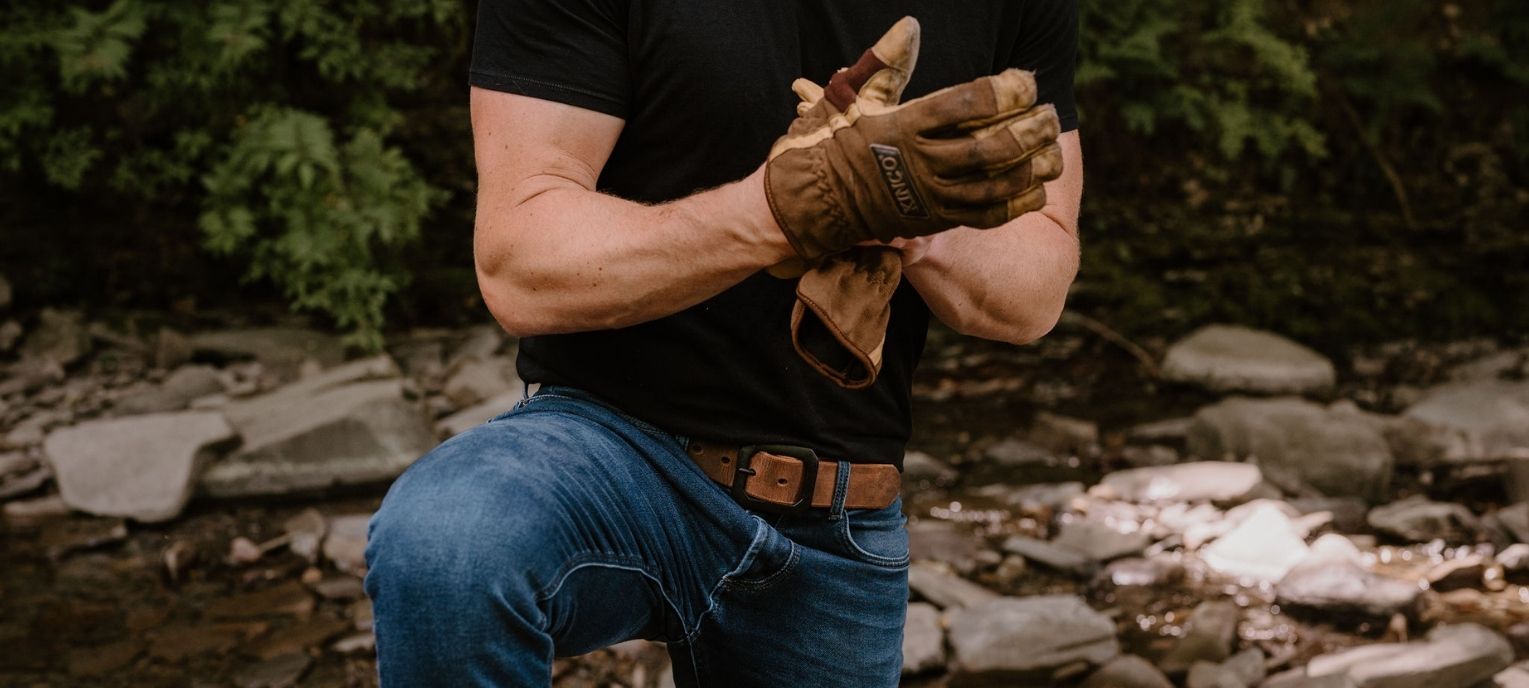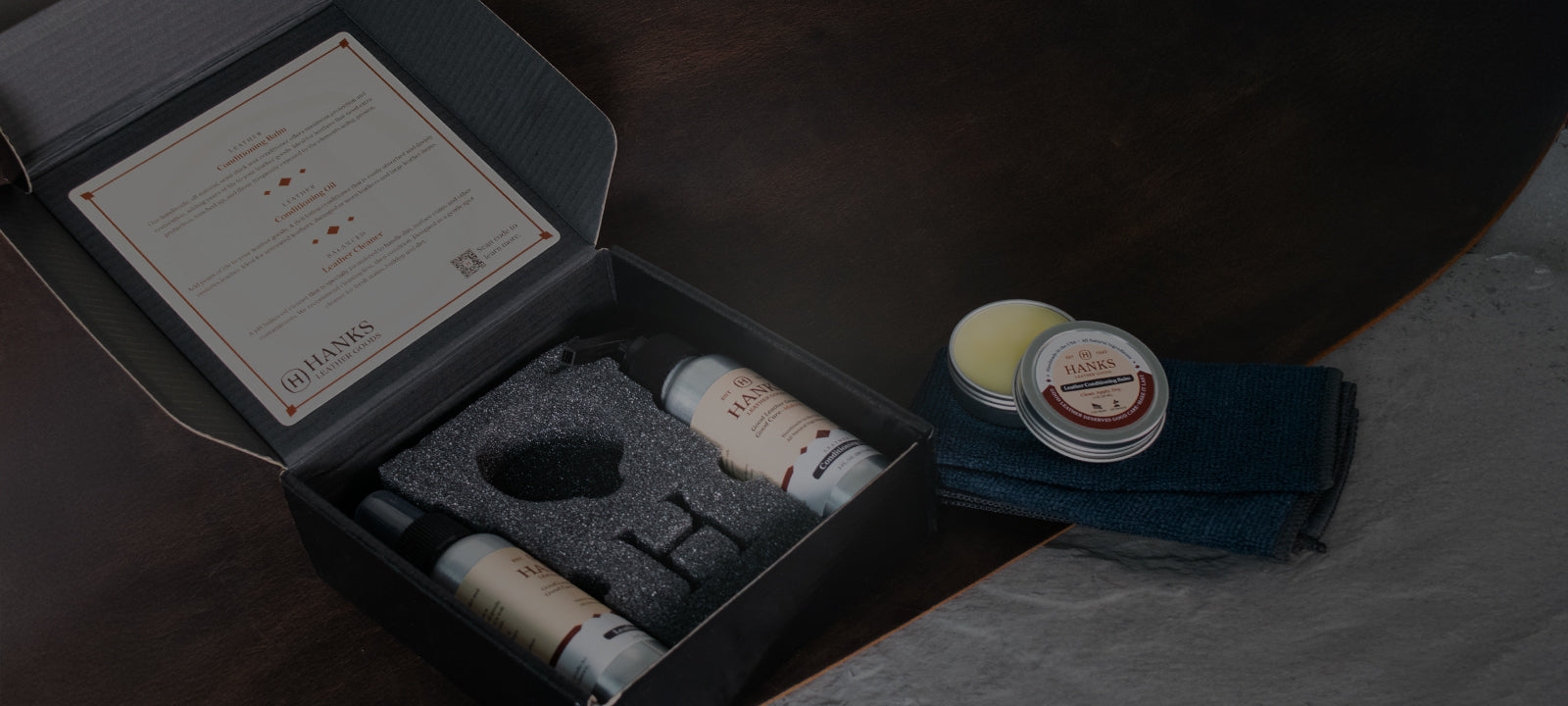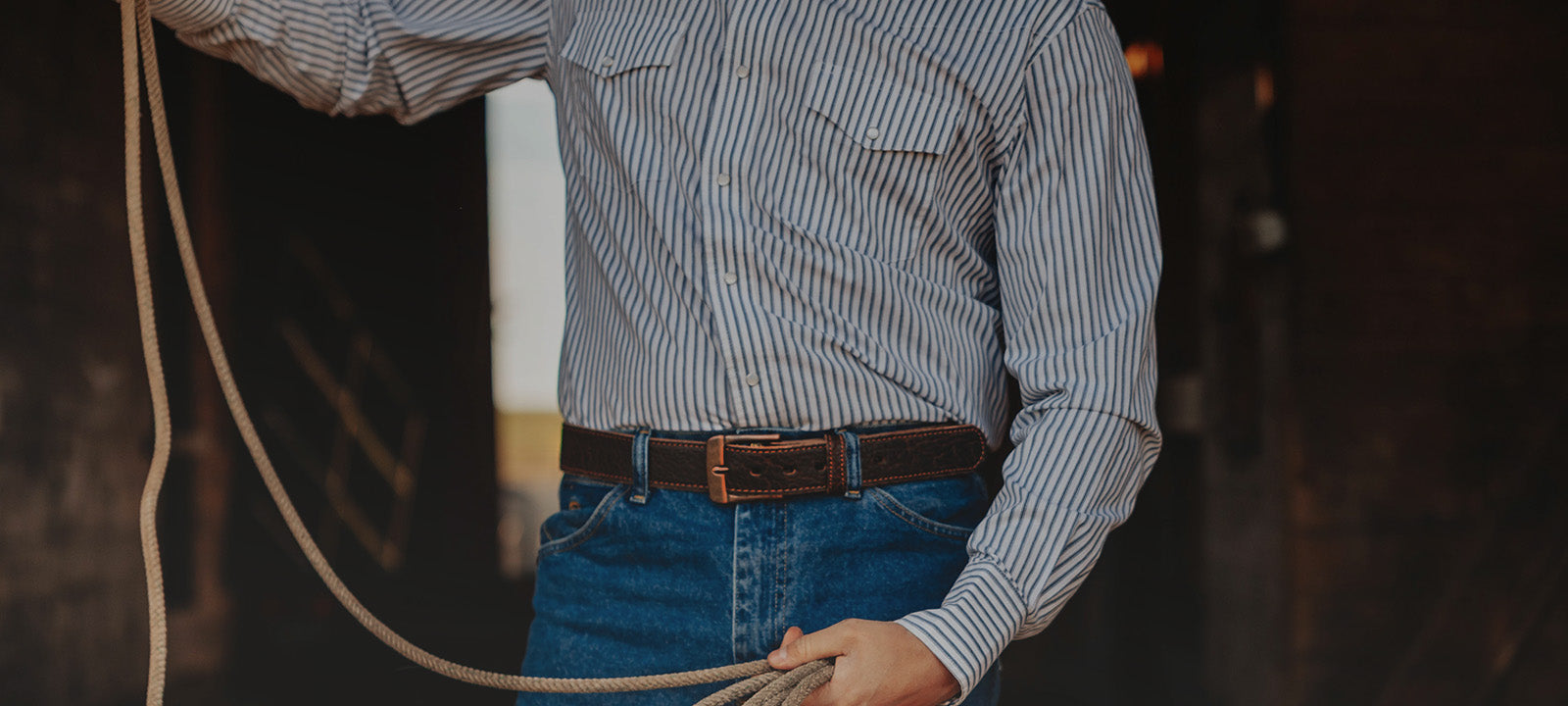The difference between a boy and a man isn't age, it's capability. It's knowing how to show up, handle yourself, and solve problems without making excuses. Here are the ten fundamental skills that separate those who coast through life from those who command it.
There's a certain confidence that comes from knowing you can handle yourself. Not the loud, look-at-me kind, but the quiet assurance of a man who's prepared for whatever life throws his way. It's the confidence you earn when you've taken the time to learn the fundamentals, timeless skills that our grandfathers knew by heart but that somehow got lost in the shuffle of modern convenience.
These aren't tricks or shortcuts. They're foundational men's life skills that define self-reliance, build character, and set you apart in a world where competence has become increasingly rare. From leather care for quality goods to delivering feedback that actually helps someone grow, these abilities matter because they reflect who you are when nobody's watching, the essence of modern masculinity grounded in capability and craftsmanship.
Let's dive into ten timeless skills that every man should master.
1. Give A Handshake That Means Something
First impressions aren't just important, they're everything. A good handshake conveys confidence, respect, and presence before you've said a single word. It's firm without being aggressive, accompanied by genuine eye contact, and matched with a slight smile that says you're glad to be there.
The key is in the web-to-web contact, that space between your thumb and index finger should meet theirs. Grip with your whole hand, not just your fingers, and give two or three solid pumps. No dead fish, no bone crusher, just a confident connection that tells someone you're worth their time.
Practice makes perfect. Next time you meet someone new, be present in that moment. A handshake isn't just a greeting, it's a small declaration that you know how to show up properly.
2. Sharpen A Knife Like You Mean It
A dull knife is more dangerous than a sharp one, and there's nothing more frustrating than struggling through a task with a blade that won't cut. Learning to sharpen a knife properly is a foundational skill that extends to every aspect of maintaining your tools.
Start with a good whetstone (400 to 1000 grit for repair work, 1000 to 3000 for regular sharpening, and 4000 to 8000 for polishing). Wet the stone, hold your blade at a 15-20 degree angle, and draw it across the stone in smooth, consistent strokes. Work both sides evenly, and finish with a leather strop to remove the burr and polish the edge.
The satisfaction of a properly sharpened blade cutting through a tomato or slicing paper-thin shavings speaks for itself. This skill teaches patience, precision, and the value of maintaining your gear properly.
3. Make A Fire Without Cursing At It
Fire-making is primal, practical, and surprisingly relevant even in modern life. Whether you're camping, dealing with a power outage, or just want to enjoy an evening by the fire pit, knowing how to build a proper fire is essential.
Start with your tinder (dry leaves, paper, or birch bark), then add kindling in a teepee or log cabin structure. The key is airflow; fire needs oxygen to breathe. Once your kindling catches, gradually add larger pieces of wood, always leaving space for air to circulate.
Skip the lighter fluid and learn to work with what nature provides. Understanding fire structure, wood selection, and proper ventilation builds problem-solving skills that extend far beyond the fire pit.
4. Iron A Shirt So It Actually Looks Good
Wrinkled clothing suggests you don't have your act together, even if you do. A properly ironed shirt signals attention to detail and respect for the occasion. It's a small thing that makes a big difference.
Start with a clean iron and distilled water in the reservoir. Begin with the collar, working from the points inward, then move to the cuffs. Iron the sleeves flat, then tackle the back panel, shoulders, and front panels in that order. Use steam for stubborn wrinkles, and always iron while the shirt is slightly damp for best results.
Hang it immediately on a proper hanger. A well-ironed shirt sets the tone for everything else you're wearing, including that quality leather belt that deserves an outfit worthy of its craftsmanship.
5. Tie A Tie (And Know Which Knot To Use)
A tie isn't just decoration, it's a statement of formality and respect. Whether you're at a wedding, a job interview, or a funeral, knowing how to tie a proper knot is non-negotiable.
Master three knots: the Four-in-Hand for everyday wear (slim and slightly asymmetrical), the Half-Windsor for business settings (medium-sized and symmetrical), and the Full Windsor for formal events (wide, triangular, and commanding). The dimple below the knot isn't optional, it adds dimension and shows you know what you're doing.
Practice until you can tie each knot by feel, without a mirror. The confidence that comes from knowing your tie looks right is worth every minute spent learning.
6. Pack Light Without Forgetting The Essentials
The ability to pack efficiently separates seasoned travelers from amateurs. It's not about cramming everything you might possibly need, it's about strategic selection and smart organization.
Start with a packing list. Roll your clothes instead of folding them to save space and reduce wrinkles. Pack versatile pieces that work in multiple combinations. Put heavy items near the wheels of your bag, and use packing cubes to keep everything organized.
A quality leather belt like those from Hanks serves multiple purposes and looks good with everything, making it an essential piece that earns its space. Remember: if you haven't worn it on your last three trips, you don't need it on this one.
7. Fix A Button Before You Lose It
Nothing screams "I'm not prepared" like a missing button at the wrong moment. Learning basic sewing repairs, especially button replacement, is a simple skill that saves money and extends the life of your clothing.
Thread your needle and double the thread, knotting the ends together. Position the button and come up through one hole from the back, down through the opposite hole. Repeat 4-5 times per hole pair, keeping tension consistent. Before knotting off, wrap the thread around the stitches beneath the button a few times to create a shank, then secure with a knot.
Keep a small sewing kit in your travel bag. Being able to field-repair your clothing demonstrates self-sufficiency and attention to detail.
8. Make A Toast That People Actually Remember
The ability to deliver a good toast is a rare skill that elevates any celebration. Whether you're honoring a friend's wedding, celebrating a promotion, or remembering someone who's passed, your words should be meaningful, concise, and heartfelt.
Keep it short (two minutes maximum). Start with a brief story or observation that captures something essential about the person or moment. Add a touch of humor if appropriate, but never at anyone's expense. End with a clear, specific sentiment that everyone can raise a glass to.
Practice helps, but authenticity matters more than polish. Speak from the heart, make eye contact with the honored person, and raise your glass with genuine intention. A good toast is a gift that people carry with them.
9. Care For Your Leather Like It's An Heirloom
Quality leather goods (whether it's a belt, boots, or a wallet) represent an investment in craftsmanship and durability. Proper leather care isn't complicated, but it's essential for maintaining that investment and developing the rich patina that tells your story. Understanding leather care is one of those timeless skills that demonstrates respect for quality craftsmanship.
Start by keeping your leather clean. Wipe it down regularly with a soft, slightly damp cloth to remove dirt and dust. For deeper cleaning, use a leather-specific cleaner. Condition every few months with a quality leather conditioner to prevent drying and cracking (work it in with circular motions and let it absorb overnight).
Store leather in a cool, dry place away from direct sunlight. For belts, hang them or roll them rather than folding. With proper care, full-grain leather actually improves with age, developing character that mass-produced alternatives can never match. A well-maintained Hanks belt isn't just an accessory, it becomes part of your story.
10. Grill A Steak That Doesn't Need Excuses
There's something primal and satisfying about cooking meat over fire. A perfectly grilled steak is a badge of honor, and the skills involved (understanding heat, timing, and temperature) transfer to countless other cooking scenarios.
Start with quality meat at room temperature. Season generously with salt and pepper, that's it. Get your grill blazing hot, then sear the steak for 2-3 minutes per side for those beautiful grill marks. Move it to indirect heat to finish cooking to your desired doneness: 120-125°F for rare, 130-135°F for medium-rare, 140-145°F for medium.
The crucial step everyone misses: let it rest for 5-10 minutes before cutting. This allows the juices to redistribute throughout the meat. Slice against the grain, and serve with confidence. No sauce necessary.
The Bottom Line: Skills Build The Man
Look around. How many guys do you know who can actually handle themselves when it matters? Not many. That's your opportunity.
These aren't party tricks or resume builders, they're the building blocks of genuine confidence. The kind that comes from knowing you can fix what's broken, maintain what matters, and show up prepared when others are scrambling.
You don't need to master everything this week. Pick one skill. Maybe it's finally learning proper leather care for that belt you've worn for three years. Maybe it's sharpening the knife that's been sitting dull in your drawer. Maybe it's practicing that handshake before your next interview.
Start somewhere. Because every man you respect (the ones who seem to have it together, who handle pressure without breaking a sweat, who make things look easy) they all started exactly where you are. They just decided to do something about it.
The tools are simple. The commitment is straightforward. The results speak for themselves.
Now get to work.
Frequently Asked Questions
What's the most important life skill a man should learn first?
Learning to give a firm handshake and maintain eye contact is foundational because it immediately impacts how others perceive you. That said, the most important skill is the one you're currently lacking in a situation that matters to you. If you can't cook, start there. If your clothes are always wrinkled, learn to iron. Focus on the skill that will make the biggest immediate impact on your daily life.
How often should I condition my leather belt to keep it in good shape?
For a belt that's worn regularly, conditioning every 3-4 months is ideal. If you live in a dry climate or your belt gets exposed to harsh conditions, you might need to condition more frequently and watch for signs of drying or cracking. Full-grain leather belts from Hanks are built to last, and proper conditioning ensures they develop that rich patina while maintaining their structural integrity for decades.
What's the difference between self-reliance and just being stubborn about not asking for help?
Self-reliance means youcan handle things yourself when necessary, not that youalways handle everything alone. A truly self-reliant man knows his capabilities and limitations, asks for help when it's the smart move, and offers his skills to others when they need it. Stubbornness is refusing help out of pride. Self-reliance is having the confidence to work through problems effectively, whether that's solo or with support.
I'm terrible at public speaking. How do I get better at making toasts without freezing up?
Start by writing out your toast beforehand and practicing it alone several times. Keep it short, 90 seconds max and focus on one clear story or sentiment. The secret is preparation, not natural charisma. Begin with smaller, lower-stakes situations like birthday dinners with close friends before working up to wedding toasts. Remember, authenticity beats eloquence every time. People respond to genuine emotion, not perfect delivery.
What's the best way to learn knife sharpening if I've never done it before?
Start with an inexpensive knife and a combination whetstone (1000/3000 grit is perfect for beginners). Watch a few quality video tutorials to understand the angle and motion, then practice. You'll probably mess up your first few attempts… that's expected. The key is consistency in your angle and even pressure across the blade. After a few sessions, you'll develop muscle memory. Consider practicing on old kitchen knives before moving to your good blades or expensive pocket knives.
Are these skills actually relevant in modern life, or are they just nostalgic?
Every single one of these skills has direct, practical application in contemporary life. You'll need to make a toast at some point. Your clothes need to look presentable for important occasions. Quality leather goods require maintenance. Being able to handle yourself in various situations builds genuine confidence that translates to career success, relationships, and personal satisfaction. These aren't relics of the past, they're timeless because they address fundamental aspects of showing up prepared and capable.
How do I pack light without constantly feeling like I forgot something important?
Create a master packing list on your phone that you refine after each trip. The rule of three works well: three shirts, three pairs of socks, three pairs of underwear. Choose versatile pieces that work in multiple combinations. Wear your bulkiest items during travel. Most importantly, remember that you can buy almost anything you forget at your destination. The anxiety of forgetting something is usually worse than the actual inconvenience of being without it.
What makes full-grain leather better than other types of leather?
Full-grain leather is the highest quality because it includes the entire grain layer of the hide, with all the natural characteristics intact. It's the most durable, develops a beautiful patina over time, and actually gets better with age rather than deteriorating. Cheaper leathers are sanded down to remove imperfections, which also removes the strongest fibers. Full-grain leather tells a story, every mark and variation is part of its character. When properly cared for, a full-grain leather belt from Hanks will outlast you and become an heirloom piece that carries your story forward.




